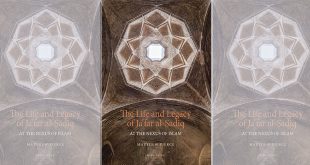The workshop focused on various strands of Twelver Shia Islam – defined by doctrinal differences or following different sources of clerical authority, the legal and ethical practices, rituals and everyday lived experience – and investigated how different forms of Shia marriage are debated and concluded.
Annelies Moors (AISSR, UvA) and Yafa Shanneik (University of Birmingham) organized an exploratory workshop about the Global Dynamics of Shia Marriages at the University of Amsterdam as part of the ERC project ‘Problematizing “Muslim Marriages,” Ambiguities and Contestations’.
This pioneering international workshop on Shia Marriages brought together researchers working on Iran, Oman, Lebanon, Pakistan, Indonesia, Ghana, the UK, Norway, Belgium, and the Netherlands. The workshop focused on various strands of Twelver Shia Islam – defined by doctrinal differences or following different sources of clerical authority, the legal and ethical practices, rituals and everyday lived experience – and investigated how different forms of Shia marriage are debated and concluded.
It recognized that the boundaries between Sunni and Shia Islam are not stable, but constructed, reproduced and transformed, not least through and in the field of marriage. Whether particular kinds of marriage are deemed more or less conventional, such as temporary marriages or mixed marriages, is highly contextual, depending on time and place, on the parties involved, and on whose point of view one adopts.
Workshop topics
In this workshop the global dynamics of Shia marriages in relation to economic, political, and cultural processes of change discussed, such as:
- New forms of wealth and precarity that affect gender and generational relations, including Islamic concepts such as ‘the male provider’ and the dower.
- Changing communal relations, both with other Muslims and non-Muslims, that reproduce, solidify or transgress particular kinds of boundaries.
- Increased mobility and immobility, growing transnational networks (including social media) and increased state surveillance.
- New aesthetic styles, commodification and the cultural politics of marriage, from dating practices to the celebration of weddings.
The workshop was held on August 24 to 26, 2017.
 Ijtihad Network Being Wise and Faithful Muslim in the Contemporary World
Ijtihad Network Being Wise and Faithful Muslim in the Contemporary World
